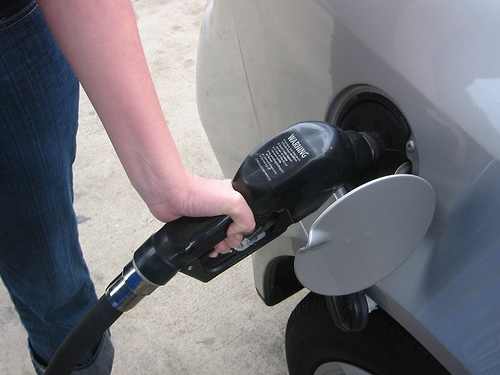When it comes to second generation biofuels, Washington State University research shows that consumers are willing to pay a premium price, 11 percent more than conventional fuel costs, in order to help the environment.
“We were surprised the premium was that significant,” said Jill McCluskey, WSU professor in the School of Economic Sciences. “We wanted to study people in different regions of the country, to make sure we weren’t just getting a local result, and people in all three cities we studied said they would pay more for these fuels.”
MORE: Park Kicks Dirty Chemical Sprays For Greener, More Entertaining Weeders
Second generation biofuels are made from non-food sustainable biological sources, like wood scraps –which recently powered an Alaska Airlines flight from Seattle to Washington, D.C.
A researcher who studies new biofuels at WSU asked McCluskey to find out whether people would actually buy second generation biofuels, and what they would pay for it.
“This new biofuel doesn’t exist commercially yet, so we have to do these studies to make sure there’s a potential market for it,” McCluskey said. “And this shows there clearly is a market.”
MORE: Teenage Girl Turns Plastic Trash Into Million-Dollar Biofuel
McCluskey and her co-author, recent WSU Ph.D. graduate Tongzhe Li, conducted surveys in Portland, Ore., Minneapolis and Boston. In Portland, the average amount participants would pay for second generation biofuel over conventional fuel was 17 percent, while in Minneapolis and Boston the averages were 9 percent and 8 percent.
“People in the survey were concerned that the new fuel may put their car at risk, by not running the same as conventional fuel,” she said. “But they also saw the added benefit to the environment.”
CHECK OUT: Costa Rica Has Been Powered Only By Renewable Energy For 122 Days
The researchers asked participants if they would be willing to pay a certain amount for the product. If they said no, researchers offered a discount and asked if participants would pay that amount. However, if respondents said yes, researchers asked if they would be willing to pay a little more for the product.
Before they were surveyed, half of the participants were given information about second generation biofuels. Those participants were more willing to pay a greater premium, which suggests that marketing the benefits of the new biofuels would improve consumers’ perceptions, believes McCluskey, whose work was funded by part of a grant from the National Science Foundation.
(Source: Washington State University)
Fuel Your Friends With Some Positivity: Click To Share – Photo by FutureAtlas, CC




















